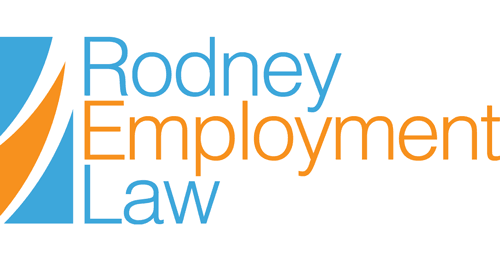A Shot In The Arm: Can Your Workplace Mandate COVID-19 Vaccines?
 While a number of COVID-19 vaccine options have now been approved by Health Canada and will be available shortly, the newest challenge is how those vaccines will be distributed. The federal and provincial governments are making early efforts to protect more vulnerable populations, such as healthcare workers and senior citizens. However, the plan for widespread distribution amongst children and adults is less clear.
While a number of COVID-19 vaccine options have now been approved by Health Canada and will be available shortly, the newest challenge is how those vaccines will be distributed. The federal and provincial governments are making early efforts to protect more vulnerable populations, such as healthcare workers and senior citizens. However, the plan for widespread distribution amongst children and adults is less clear.
Once mass vaccinations are available, what will it mean for Canadian workplaces? Can employers mandate that their employees get the vaccine, or punish them for refusing to do so? Many of our employer clients have been asking us what they can do about keeping their workplaces safe. We wanted to shine a light on whether or not employers can mandate that their employees get vaccinated against COVID-19, and what good vaccine policies might look like.
Striking the Balance
While our employer clients have asked us if they can implement a mandatory vaccine policy, the answer is simply not clear cut. Whether an employer can or cannot do something legally depends on decisions from the courts, and Ontario courts have not yet ruled on the legality of a mandatory COVID-19 vaccination policy.Thus, we need to look at previous similar situations, along with the advice of medical experts, and examine the issue from all sides.
In a recent issue of the Canadian Medical Association Journal, a number of physicians put forth their opinion that due to the widespread COVID-19 outbreak and the serious health risks associated with infection, a mandatory vaccination policy for employees in the health care sector may be legally defensible. While such a policy would be scrutinized under the various human rights in Canada’s Charter of Rights and Freedoms, the doctors believe that mandatory vaccines in some of these workplaces would pass muster, as any infringements on human rights are reasonably limited by health and safety implications.
Employers outside the healthcare field, though, may need to tread lightly. While mandatory vaccine policies for COVID are untested given the lack of case law on the issue, our best estimation we have of how the law might assess the need for mandatory workplace vaccinations is from previous decisions related to mandatory flu shots. There is one key difference though in that COVID-19 has far more significant consequences on public health and safety. In cases involving flu shot requirements, arbitrators have previously decided that a mandatory vaccination policy must be (among other requirements) clear, unequivocal, and reasonable in the circumstances.
Under Ontario’s Occupational Health and Safety Act, employers have a legal duty to keep employees safe – a responsibility that must be taken seriously. Given the strict nature of current government-mandated COVID-19 protocols in workplaces, it may be argued that mandatory vaccinations are the most certain way to maintain workplace safety. Yet mandatory vaccinations may not be the only way to keep employees safe. Additionally, employees may be reluctant to take the vaccine for various reasons (more on that shortly), which casts doubt on whether a mandatory vaccination can now be considered a new job requirement. Can employees then be disciplined, or even have their employment terminated, because they refuse to take the vaccination?
Never One-Size-Fits-All
The reality of a vaccination policy is that while it should be clear and unequivocal, it should never be one-hundred percent uniform. Given Ontario’s complex human rights framework, it is nearly impossible to apply rules uniformly without allowing for exceptions based on numerous protected human rights grounds.
Any given workplace may have employees who are unwilling to receive the vaccine due to their religious beliefs, or unable to receive the vaccine for medical reasons. These are both protected areas under Ontario’s Human Rights Code, and these individuals cannot be simply ‘ordered’ to receive a vaccine without the threat of a substantial discrimination case before the Ontario Human Rights Tribunal.
Employers are allowed to question these reasons in order to verify them, but must do so carefully so as to not inadvertently discriminate against employees for these reasons. Instead, employers are required to accommodate employees who are protected under the Human Rights Code to the point of ‘undue hardship.’ An employee cannot be penalized because their protected human rights prohibit them from receiving the COVID-19 vaccination. Instead, employers must actively make accommodations for these employees wherever feasible, whether it means having them continuing to work from home after workplaces reopen, or finding another way to ensure everyone’s collective safety.
Final Thoughts
For employers, the question of whether vaccines can be mandated is a complicated one, and not all workplaces may be able to justify having such a policy. It is also an issue that will continue to evolve as more information comes to light. In the meantime, Employers are not powerless and can take a number of measures to promote vaccine adherence, similar to how many workplaces promote and encourage blood donation. There is little harm in an employer being openly ‘pro-vaccine,’ so long as this is carried out with the understanding that not all employees may be eligible to participate.
Employers can also look to draft comprehensive workplace vaccination policies. These policies can lay out items such as what proof employees must provide of their vaccination status, required timelines on obtaining a vaccination, and any penalties in place for failure to comply with this policy. There may also be added compliance measures depending on the nature of the workplace environment (e.g. healthcare workers) where being vaccinated may be a requirement of the job. Any consequences, however, must take protected human rights grounds into consideration and should not threaten an employee’s continued employment should they fail to comply.
For employees, we understand that vaccine rollouts have been confusing and there may be no clear timeline on when you will be expected to return to your usual workplace. When that time does come, though, your employer is required to keep you safe at work. This means finding efficient means to protect you and your safety, while also protecting your human rights.
Employers, we would be pleased to work with you to draft effective workplace vaccine policies and return to work strategies. We also work with employees whose human rights may be infringed by their employer’s ill-conceived vaccination mandate. Contact us today at [email protected] or complete our contact form – we are always here to help.
